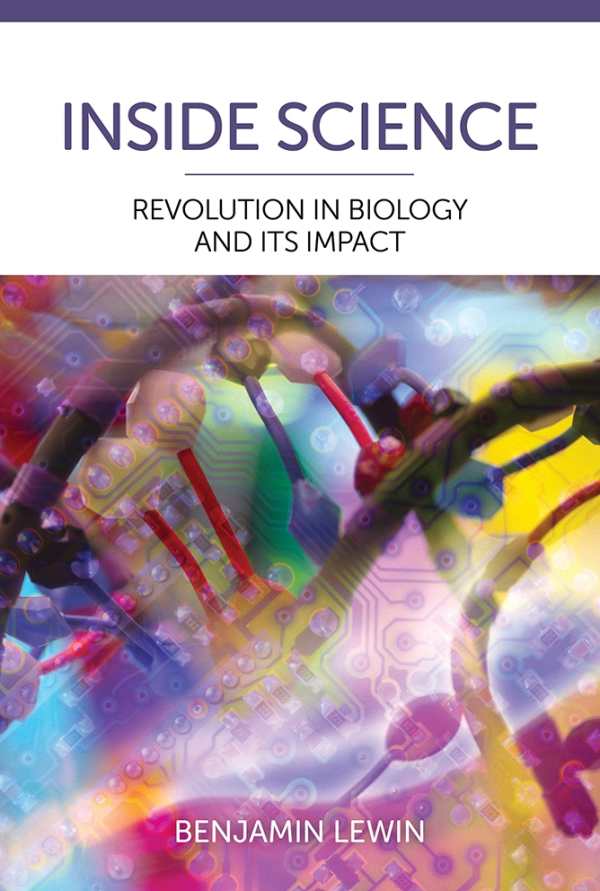Inside Science
Revolution in Biology and Its Impact
Persuasive and thought-provoking, Benjamin Lewin’s Inside Science examines how big data is changing biological research.
Contemporary scientific methods, Lewin says, are driven by large research teams, aggregated results across multiple studies, epublishing with accelerated timelines, and analysis by AI—methods that reshape bioscience at a fundamental level. While such “advances” enable data-intensive breakthroughs such as the Human Genome Project and CRISPR, Lewin argues that they come at a cost.
With a measured view drawing on his twenty-five years as the founding editor of a leading bioscience journal, Lewin considers what is lost in the (perhaps inevitable) shift away from hypothesis-driven science toward data-driven science. Traditional bioscience, he notes, was conducted by small teams of researchers working from a hypothesis who all grasped the “gestalt” of their work and were “more likely to take risks, to follow hunches, and to make unexpected discoveries.” Now, large research teams are comprised of specialists for whom “data trumps all…sometimes outrunning the ability of the authors to propose hypotheses.”
Focusing most on genetic research, Lewin draws a dramatic contrast between the discovery of the double helix in 1953 by a two-person team willing to question established doctrines and the genome project aggregating data across hundreds of studies. While not alarmist, the book raises provocative questions: are scientists becoming technicians rather than critical thinkers? Are contemporary researchers so averse to “failing” that they won’t question established dogma? Does the “publish or perish” mentality encourage quantity over quality? Can questions about patents, fraud, and ethics keep pace? It stops short of urging a return to old methods, but does encourage cognizance of the issues at stake.
Inside Science is a brilliant analysis of the history of the scientific method alongside a clarion call to consider the changes underway with big data and AI.
Reviewed by
Kristen Rabe
Disclosure: This article is not an endorsement, but a review. The publisher of this book provided free copies of the book to have their book reviewed by a professional reviewer. No fee was paid by the publisher for this review. Foreword Reviews only recommends books that we love. Foreword Magazine, Inc. is disclosing this in accordance with the Federal Trade Commission’s 16 CFR, Part 255.

